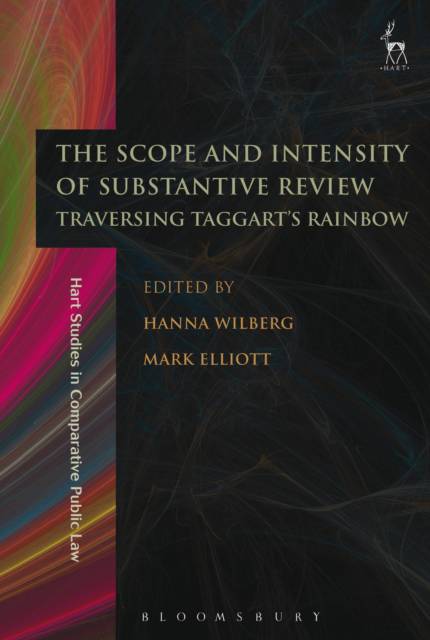
- Afhalen na 1 uur in een winkel met voorraad
- Gratis thuislevering in België vanaf € 30
- Ruim aanbod met 7 miljoen producten
- Afhalen na 1 uur in een winkel met voorraad
- Gratis thuislevering in België vanaf € 30
- Ruim aanbod met 7 miljoen producten
Zoeken
The Scope and Intensity of Substantive Review
Traversing Taggart's Rainbow
€ 81,45
+ 162 punten
Omschrijving
Inspired by the work of Professor Michael Taggart, this collection of essays from across the common law world is concerned with two separate but related themes. First, to what extent and by what means should review on substantive grounds such as unreasonableness be expanded and intensified? Jowell, Elliott and Varuhas all agree with Taggart that proportionality should not 'sweep the rainbow', but propose different schemes for organising and conceptualising substantive review. Groves and Weeks, and Hoexter evaluate the state of substantive review in Australia and South Africa respectively.
The second theme concerns the broader (Canadian) sense of substantive review including the illegality grounds, and whether deference should extend to these grounds. Cane and Aronson consider the relevance and impact of different constitutional and doctrinal settings. Wilberg and Daly address questions concerning when and how deference is to operate once it is accepted as appropriate in principle. Rights-based review is discussed in a separate third part because it raises both of the above questions. Geiringer, Sales and Walters examine the choices to be made in settling the approach in this area, each focusing on a different dichotomy. Taggart's work is notable for treating these various aspects of substantive review as parts of a broader whole, and for his search for an appropriate balance between judicial scrutiny and administrative autonomy across this entire area. By bringing together essays on all these topics, this volume seeks to build on that approach.Specificaties
Betrokkenen
- Uitgeverij:
Inhoud
- Aantal bladzijden:
- 444
- Taal:
- Engels
- Reeks:
- Reeksnummer:
- nr. 8
Eigenschappen
- Productcode (EAN):
- 9781509917044
- Verschijningsdatum:
- 28/09/2017
- Uitvoering:
- Paperback
- Formaat:
- Trade paperback (VS)
- Afmetingen:
- 156 mm x 234 mm
- Gewicht:
- 616 g

Alleen bij Standaard Boekhandel
+ 162 punten op je klantenkaart van Standaard Boekhandel
Beoordelingen
We publiceren alleen reviews die voldoen aan de voorwaarden voor reviews. Bekijk onze voorwaarden voor reviews.







